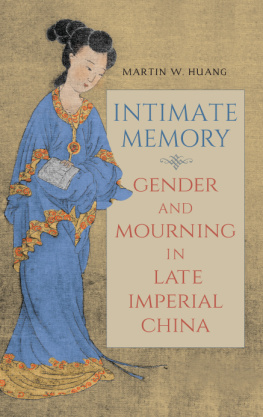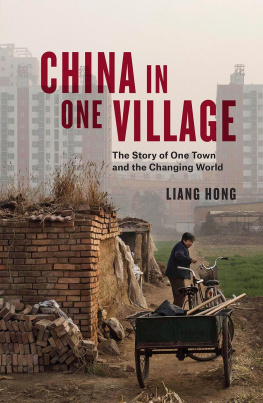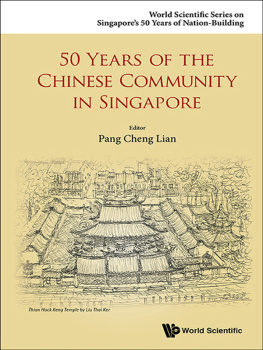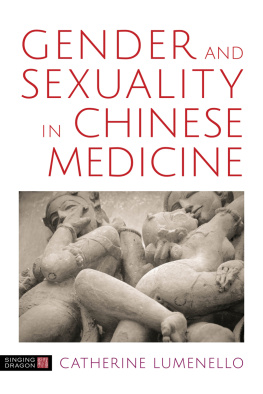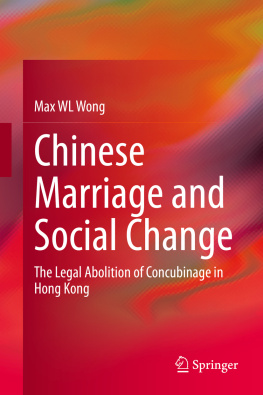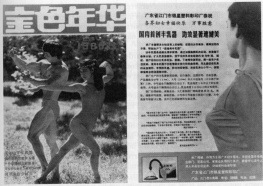An East Gate Book
First published 2004 by M.E. Sharpe
Published 2015 by Routledge
2 Park Square, Milton Park, Abingdon, Oxon 0X14 4RN
711 Third Avenue, New York, NY 10017, USA
Routledge is an imprint of the Taylor & Francis Group, an informa business
English language edition copyright 2004 Taylor & Francis. All rights reserved.
No part of this book may be reprinted or reproduced or utilised in any form or by any electronic, mechanical, or other means, now known or hereafter invented, including photocopying and recording, or in any information storage or retrieval system, without permission in writing from the publishers.
Notices
No responsibility is assumed by the publisher for any injury and/or damage to persons or property as a matter of products liability, negligence or otherwise, or from any use of operation of any methods, products, instructions or ideas contained in the material herein.
Practitioners and researchers must always rely on their own experience and knowledge in evaluating and using any information, methods, compounds, or experiments described herein. In using such information or methods they should be mindful of their own safety and the safety of others, including parties for whom they have a professional responsibility.
Product or corporate names may be trademarks or registered trademarks, and are used only for identification and explanation without intent to infringe.
Library of Congress Cataloging-in-Publication Data
Ruan, Xinbang.
[Hun yin, xing bie yu xing. English.]
Marriage, gender, and sex in a contemporary Chinese village / by
Sun-pong Yuen, Pui-lam Law, and Yuk-ying Ho.
p.cm.
An East gate book.
Includes bibliographical references and index.
ISBN 0-7656-1253-4 (alk. paper); ISBN 0-7656-1254-2 (pbk.: alk. paper)
1. Women in rural developmentChina. 2. MarriageChina. I. Ruan,
Xinbang. II. Luo, Peilin. III. Ho, Yuk-ying, 1964 IV. Title.
HQ 1240.5.C6 R8313 2003
306.70951dc21
2003011428
ISBN 13: 9780765612540 (pbk)
ISBN 13: 9780765612533 (hbk)
From 1993 to the beginning of 2002, in a period spanning eight years, we conducted participant observation research in some villages along the Pearl River Delta. During the mid-1990s, we collated the research data and in 1998 published the findings in a book titled Hunyin, Xingbie yu Xing Yige Dangdai Zhongguo Nongcun de Kaocha (Marriage, Gender, and Sex in a Contemporary Chinese Village). The book explores the changing concepts on marriage and gender relationship, and attitudes toward sex among the Chinese of different cohorts over the past fifty years. It attempts to reveal in a wider perspective the tension between tradition and modernity against the economic modernization in the southern rural society in China with particular reference to the transformation of the Chinese self. Since the book was published, we have gone back periodically to the main fieldwork site of Baixiu Village and continued the research work. This expanded English edition is based on the Chinese edition, augmented by portrays mainly the political reforms taking place at the grassroots level, which the Chinese Communist Party put into effect. It deals with the election of the various village representatives. The emphasis is on how the grassroots political reforms impact the village society and the relationships among the villagers.
More than twenty years have passed since Chinas economic reform and opening-up policy was initiated in 1979. China has undergone changes that can only be characterized as cataclysmic. Market economic forces have swept China like an irresistible flood. While the Chinese Communist Party had sought without success to use political means to eliminate or alter traditional Chinese ways of life, the market economy has swept many such traditions away. This is clearly demonstrated in the development of Baixiu Village in the last two decades. Now, at the dawn of the twenty-first century, Baixiu Village can boast of visible developments in infrastructure, but economically and socially, advances no longer yield pleasant surprises to the observer. The village now exhibits most of the features of modern society and capitalism. The villagers perceptions of life are basically no different from those of Chinese communities in capitalist societies like Hong Kong and Taiwan. Other than the appellation socialist country, there are hardly any signs of a socialist or communist regime. On the other hand, many people have commented on one phenomenon in Chinas current development, namely, that reforms in the political sphere lag far behind those in the economic. Some even say that Chinas economic reform fixes its sights on only one thingmonetary profitand that growth of the sense of individual autonomy of the Chinese is restricted to the sphere of economic self-interest. However, we are of the opinion that the question is more complicated than it appears. In , the last chapter of this book, we shall attempt to explain the development of a kind of Chinese individual autonomy based on our examination of the grassroots political reforms in village society.
In December 1998, Baixiu Village held its first-ever one-person-one-vote direct election since the founding of the Peoples Republic of China, to elect the village representatives of the village assembly, the chairmen of six village groups (each group equivalent to a production team of the peoples commune in the old days), the leader, deputy leader, and three members of the Village Committee. In the course of the election, even though there were various problems, the villagers participated ardently, maybe because it was their first opportunity to do so. The problems were varied. The Baixiu Village Election Committee did not follow all the election regulations in electing the group leaders. Some candidates offered bribes to get votes. Still, over 1,500 villagers voted, making for a turnout rate of over 95 percent. The Village Election Committees work falls into two categories. The first consists of measures that implement the policies of the state. The Village Committee must follow the stipulated rules to ensure the implementation of the major policies of the central government such as birth control, tax collection, levying agricultural tax paid in grain, environmental protection, and so on. The second type of work pertains to the many undertakings related to the villagepublic affairs ranging from its economy, to politics, to culture. The committee is supposed to deal with all such affairs by democratic decision making through democratic management, under the critical democratic supervision of the village assembly. The governments of towns have no say in the affairs that are within the self-governing confines of the village; all they can do is to provide guidance, support, and assistance. In other words, the elected Village Committee has real executive powers to deal with the public affairs of the village.
The fact that the Chinese government institutes Village Committees throughout all the villages in the country is seen by many as the beginning of democracy in rural societies. Some researchers think that since the spread of the election of Village Committees in the late eighties, villagers have been able to practice the one-person-one-vote election to select members of the committee, so they have gradually learned the concepts associated with democracy. As a result, the basis for democratic development has gradually broadened.


